- Home
- Jack Higgins
The Eagle Has Flown Page 13
The Eagle Has Flown Read online
Page 13
'You know — the invasion.'
He stifled a strong desire to laugh. 'We'll speak again I'm sure after I've seen your brother.'
He went back to the kitchen where Ryan still sat at the table. The girl, washing dishes at the sink, said, 'Is everything all right?'
'Fine,' he said. 'Every journey needs a first step.' He picked up his case. 'If you could show me my room. I need to change.'
She took him upstairs, led him into a back bedroom overlooking the river. Devlin unpacked his case, laid the uniform out on the bed. The Smith & Wesson he slipped under the mattress with the webbing belt and holster together with an ankle holster in leather which he also took from the case. He found the bathroom at the end of the corridor, had a quick shave and brushed his hair, then returned to the bedroom and changed.
He went downstairs fifteen minutes later resplendent in his uniform. 'Jesus, Liam, I never thought I'd see the day,' Ryan said.
'You know the old saying, Michael,' Devlin told him. 'When you're a fox with a pack on your tail you stand a better chance if you look like a hound.' He turned to Mary and smiled. 'And now, girl dear, another cup of tea would go down just fine.'
It was at that moment that the poor girl fell totally in love with him, what the French call coup de foudre, the thunderclap. She felt herself crimson and turned to the cooker. 'Of course, Mr Devlin. I'll make some fresh.'
To its members, the Army and Navy Club was simply known as the Rag. A great gloomy palazzo of a place in Venetian style and situated on Pall Mall. Its governing committee had been renowned since Victorian times for its leniency towards members disgraced or in trouble, and Sir Maxwell Shaw was a case in point. No one had seen the slightest necessity to blackball him over the business of his detection under Regulation I8B. He was, after all, an officer and a gentleman who had been both wounded and decorated for gallantry in the service of his country. He sat in a corner of the morning room drinking the Scotch the waiter had brought in and thinking about Lavinia's astonishing telephone call. Quite unbelievable that now, after so long, the summons should come. My God, but he was excited. Hadn't felt such a charge in years.
He called for another Scotch and the same moment a porter approached him. 'Your guest is here, Sir Maxwell.'
'My guest?'
'Major Conlon. Shall I show him in?'
'Yes. Of course. At once, man.'
Shaw got to his feet, straightening his tie as the porter returned with Devlin who held out his hand and said cheerfully, 'Harry Conlon. Nice to meet you, Sir Maxwell.'
Shaw was dumbfounded, not so much by the uniform, but by the dog collar. He shook hands as the waiter brought his glass of Scotch. 'Would you like one of these, Major?'
'No thanks.' The waiter departed and Devlin sat down and lit a cigarette. 'You look a little shaken, Sir Maxwell.'
'Well goodness, man, of course I am. I mean, what is all this about? Who are you?'
'Does the Falcon still wait?' Devlin asked. 'Because it is now time to strike.'
'Yes, but…'
'No buts, Sir Maxwell. You made a pledge a long time ago when Werner Keitel recruited you and your sister to, shall we say, the cause? Are you in or are you out? Where do you stand?'
'You mean you've got work for me?'
'There's a job to be done.'
'The invasion is finally coming?'
'Not yet,' Devlin said smoothly, 'but soon. Are you with us?'
He'd been prepared to bring pressure to bear, but in the event, it was unnecessary. Shaw gulped down the whiskey. 'Of course I am. What do you require of me?'
'Let's take a little walk,' Devlin said. 'The park across the road will do fine.'
It had started to rain, bouncing from the windows. For a moment, there wasn't a porter in the cloakroom. Shaw found his bowler hat, raincoat and umbrella. Amongst the jumble of coats there was a military trenchcoat. Devlin picked it up, followed him outside and put it on.
They went across to St James's Park and walked along the side of the lake towards Buckingham Palace, Shaw with his umbrella up. After a while they moved into the shelter of some trees and Devlin lit a cigarette.
'You want one of these things?'
'Not at the moment. What is it you want me to do?'
'Before the war your sister used to fly a Tiger Moth. Does she still have it?'
'The RAF took it for training purposes in the winter of thirty-nine.'
'She used a barn as a hangar. Is that still there?'
'Yes.'
'And the place she used to land and take off? The South Meadow, I think you called it? It's not been ploughed up for the war effort or anything?'
'No, all the land around Shaw Place
, the land that used to be ours, is used for sheep grazing.'
'And South Meadow is still yours?'
'Of course. Is that important?'
'You could say so. A plane from France will be dropping in and in the not too distant future.'
Shaw's face became extremely animated. 'Really? What for?'
'To pick up me and another man. The less you know the better, but he's important. Does any of this give you a problem?'
'Good heavens, no. Glad to help, old man.' Shaw frowned slightly. 'You're not German, I take it?'
'Irish,' Devlin told him. 'But we're on the same side. You were given a radio by Werner Keitel. Do you still have it?'
'Ah, well, there you have me, old man. I'm afraid we don't. You see, back in forty-one the government brought in this stupid regulation. I was in prison for a few months.'
'I know about that.'
'My sister, Lavinia, you know what women are like. She panicked. Thought the police might arrive and turn the house upside down. There's a lot of marsh around our place, some of it bottomless. She threw the radio in, you see.' He looked anxious. 'Is this a problem, old man?'
'Of a temporary nature only. You're going back home today?'
'That's right.'
'Good. I'll be in touch. Tomorrow or the next day.' Devlin ground out his cigarette. 'Jesus, the rain. That's London for you. Never changes,' and he walked away.
When he turned along the terrace at the side of the house at Cable Wharf, the rain was drifting across the river. There was an awning stretching from the cable of the motor boat over the cockpit. Mary Ryan sat under it, safe from the rain, reading a book.
'Are you enjoying yourself down there?' Devlin called.
'I am. Uncle Michael's in the kitchen. Can I get you anything?'
'No, I'm fine at the moment.'
When Devlin went in, Ryan was sitting at the table. He'd covered it with newspaper and was stripping a Luger pistol, oil on his fingers. 'God help me, Liam, I've forgotten how to do this.'
'Give me a minute to change and I'll handle it,' Devlin told him.
He was back in five minutes wearing dark slacks and a black polo-neck sweater. He reached for the Luger parts and got to work oiling them, then putting the whole weapon together expertly.
'Did it go well?' Ryan asked.
'If meeting a raving lunatic could ever go well, then yes,' Devlin told him. 'Michael, I'm dealing with an English aristocrat so totally out of his skull that he's still eagerly awaiting a German invasion and that's when he's sober.'
He told Ryan about Shaw Place
, Shaw and his sister. When he was finished, Ryan said, 'They sound mad, the both of them.'
'Yes, but the trouble is I need a radio and they haven't got one.'
'So what are you going to do?'
'I was thinking about the old days, when I came over to handle that active service unit. They got weapons and even explosives from underworld sources. Am I right?'
Ryan nodded. 'That's true.'
'And you, Michael, as I recall, were the man with the contacts.'
'That was a long time ago.'
'Come off it, Michael. There's a war on, black market in everything from petrol to cigarettes. Just the same in Berlin. Don't tell me you aren't in it up to your neck
and you a London cabbie?'
'All right,' Ryan put up a hand defensively. 'You want a radio, but the kind you want would have to be Army equipment.'
'That's right.'
'It's no good going to some back-street trader.'
There was a silence between them. Devlin broke the Luger down and wiped each piece carefully with a rag. 'Then who would I go to?'
Ryan said, 'There's a fella called Carver - Jack Carver. Has a brother called Eric.'
'What are they, black marketeers?'
'Much more than that. Jack Carver's probably the most powerful gangster in London these days. Anything, but anything that goes down, Carver gets a piece. Not just black market. Girls, gambling, protection. You name it.'
'I used to know a fella in Dublin in the same line of work,' Devlin said. 'He wasn't so bad.'
'Jack Carver's the original bastard and young Eric's a toad. Every girl on the pavement is terrified of him.'
'Do you tell me?' Devlin said. 'I'm surprised nobody's stepped in here before now.'
'It wasn't New York gangsters who invented cementing dead bodies into new roadways,' Ryan said. 'Jack Carver patented that idea. He's the one who supplied that active service unit with their guns and explosives back in thirty-six. If he had a grand-mother he'd sell her to the Germans if he thought there was money in it.'
'I'm frightened to death,' Devlin said. 'Well, Carver is the kind of man who can lay his hands on anything, so if I want a radio . .
'Exactly.'
'Fine. Where do I find him?'
'There's a dance hall a couple of miles from here in Limehouse. It's called the Astoria Ballroom. Carver owns it. Has a big apartment upstairs. He likes that. Convenient for his brother to pick up the girls.'
'And himself, I suppose?'
'You'd suppose wrong, Liam. Girls don't interest him in the slightest.'
Devlin nodded. 'I take your drift.'
His hands moved suddenly with incredible dexterity, putting the Luger together. He was finished in seconds and rammed a magazine up the butt.
'Jesus, you look like death himself when you do that,' Ryan said.
'It's just a knack, Michael.' Devlin wrapped up the oily newspapers and put them in the bin under the sink. 'And now, I think we'll take a little walk down by the river. I'd like your opinion on something.'
He went down the stairway to the boat and found Mary still reading. The rain dripped from the edge of the awning and there was a slight mist on the river. Devlin was wearing the military trenchcoat he'd stolen from the Army and Navy Club. He leaned against the rail, hands in his pockets.
'What are you reading?'
She held the book up. 'Our Mutual Friend.'
'I've started something.'
She stood up. 'We're going to have fog in the next few days. A real pea-souper.'
'How can you tell that?'
'I'm not sure, but I'm always right. It's the smell I recognize first.'
'And do you like that?'
'Oh yes. You're alone, enclosed in your own private world.'
'And isn't that what we're all looking for?' He took her arm. 'Your uncle Michael and I are taking a little walk in the rain by the river. Why don't you come with us? That's if you've got nothing better to do.'
They drove to St Mary's Priory in Ryan's cab. He parked at the side of the road and they sat looking at the entrance. There was a Morris saloon car parked outside painted olive green. It said 'Military Police' on the side. As they watched, Lieutenant Benson and a corporal came out of the entrance, got in the car and drove off.
'You're not going to get far through the front door,' Ryan said.
'More ways of skinning a cat than one,' Devlin said. 'Let's take a little walk.'
The strip of shingle he'd walked along earlier seemed wider and when he stopped to indicate the archway there was more headroom. 'It was almost under the surface this morning,' he said.
'The Thames is a tidal river, Liam, and the tide's going out. There'll be times when that thing's under the water entirely. Is it important?'
'Runs close to the foundations of the Priory. According to the plans there's a grill into the crypt under the Priory chapel. It could be a way in.'
'You'd need to take a look then.'
'Naturally, but not now. Later, when it's nice and dark.'
The rain increased to monsoon-like proportions and Ryan said, 'For Christ's sake, let's get in out of this,' and he started back to the steps.
Devlin took Mary's arm. 'Would you happen to have yourself a pretty frock tucked away somewhere? Because if you do, I'll take you dancing this evening.'
She paused, staring at him, and when she started walking again the limp seemed more pronounced. 'I don't dance, Mr Devlin. I can't.'
'Oh, yes you can, my love. You can do anything in the whole wide world if you put your mind to it.'
Chapter Nine
THE ASTORIA WAS a typical London dance hall of the period and very crowded. There was a band on each side of the room, one in blue tuxedos, the other in red, Devlin wore his dark clerical suit, but with a soft white shirt and black tie he'd borrowed from Ryan. He waited outside the cloakroom for Mary who'd gone in to leave her coat. When she came out he saw that she had on a neat cotton dress and brown stockings. She wore white plastic earrings, fashionable at the moment, and just a hint of lipstick.
'My compliments on the dress,' he said. 'A vast improvement.'
'I don't get a chance to dress up very often,' she told him.
'Well let's make the most of it.'
He took her hand and pulled her on to the floor before she could protest. One of the bands was playing a slow foxtrot. He started to hum the tune. 'You do that well,' she said.
'Ah, well, I have a small gift for music. I play the piano badly. You, on the other hand, dance rather well.'
'It's better out here in the middle of all these people. Nobody notices.'
She was obviously referring to her limp. Devlin said, 'Girl dear, nobody notices anyway.'
She tightened her grip, putting her cheek against his shoulder and they moved into the crowd, the glitterball revolving on the ceiling, its rays bathing everything with blue light. The number came to an end and the other band broke into a fast, upbeat quickstep.
'Oh, no,' she protested. 'I can't manage this.'
'All right,' Devlin said. 'Coffee it is then.'
They went up the stairs to the balcony. 'I'm just going to the cloakroom,' she said.
'I'll get the coffee and see you back here.'
She went round to the other side of the balcony, limping noticeably, passing two young men leaning on the rail. One of them wore a pin-striped double-breasted suit and hand-painted tie. The other was a few years older, in a leather jacket, with the flattened nose of a prize-fighter and scar tissue around the eyes.
'You fancy that, Mr Carver?' he asked as they watched Mary go into the cloakroom.
'I certainly do, George,' Eric Carver said. 'I haven't had a cripple before.'
Eric Carver was twenty-two years of age with thin, wolfish features and long blond hair swept back from the forehead. A tendency to asthma attacks had kept him out of the Army. At least that's what it had said on the medical certificate his brother's doctor had provided. His father had been a drunken bully who'd died under the wheels of a cart in the Mile End Road
. Jack, already a criminal of some renown and fifteen years his senior, had looked after Eric and their mother until cancer had carried her off just before the war. Her death had brought them even closer. There was nothing Eric couldn't do, no girl he couldn't have because he was Jack Carver's brother and he never let anyone forget it.
Mary emerged from the cloakroom and limped past them and Eric said, 'I'll see you later, George.'
George smiled, turned and walked away and Eric moved round the balcony to where Mary leaned over the rail watching the dancers. He slipped his arm around her waist and then ran one hand up to cup her left breast. 'Now then, darling, and w
hat's your name?'
'Please don't,' she said and started to struggle.
'Oh, I like it,' he said, his grip tightening.
Devlin arrived, a cup of coffee in each hand. He put them down on a nearby table. 'Excuse me,' he said.
As Eric turned, slackening his grip, Devlin stood on the right foot, bearing down with all his weight.
The young man snarled, trying to pull away, and Devlin picked up one of the cups of coffee and poured it down Eric's shirt front.
'Jesus, son, I'm sorry,' he said.
Eric looked down at his shirt, total amazement on his face. 'Why you little creep,' he said and swung a punch.
Devlin blocked it easily and kicked him on the shin. 'Now why don't you go and play nasty little boys elsewhere?'
There was rage on Eric's face. 'You bastard. I'll get you for this. You see if I don't.'
He hobbled away and Devlin sat Mary down and gave her the other cup of coffee. She took a sip and looked up at him. 'That was awful.'
'A worm, girl dear, nothing to worry about. Will you be all right while I go and see this Carver fella? I shouldn't be long.'
She smiled. 'I'll be fine, Mr Devlin,' and he turned and walked away.
The door at the other end of the balcony said 'Manager's Office', but when he opened it he found himself in a corridor. He went to the far end and opened another door on to a carpeted landing. Stairs went down to what was obviously a back entrance, but the sound of music drifted from above so up he went to the next landing where a door stood open. It was only a small room, with a desk and a chair on which the man George sat reading a newspaper while music sounded over the radio.
'Nice, that.' Devlin leaned on the doorway. 'Carroll Gibbons from the Savoy. He plays the grand piano, that man.'
George looked him over coldly. 'And what do you want?'
'A moment of Jack Carver's valuable time.'
'What's it about? Mr Carver don't see just anybody.'
Devlin took out a five-pound note and laid it on the table.
'That's what it's about my old son, that and another one hundred and ninety-nine like it.'
George put the newspaper down and picked up the banknote. 'All right. Wait here.'

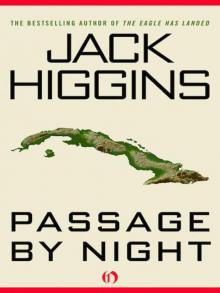 Passage by Night (v5)
Passage by Night (v5)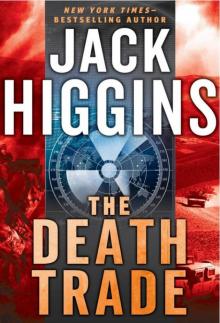 The Death Trade sd-20
The Death Trade sd-20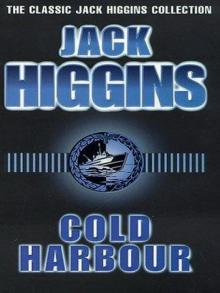 Cold Harbour
Cold Harbour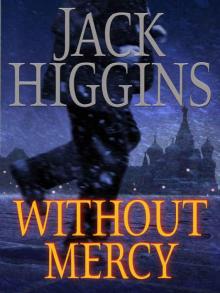 Without Mercy
Without Mercy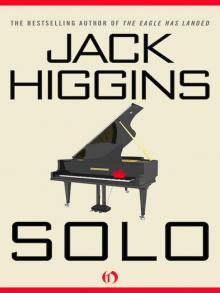 Solo (Aka the Cretan Lover)(1980)
Solo (Aka the Cretan Lover)(1980) First Strike
First Strike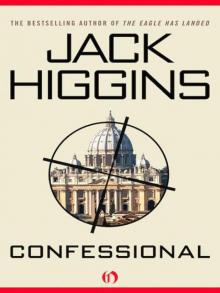 Confessional - Devlin 03 (v5)
Confessional - Devlin 03 (v5)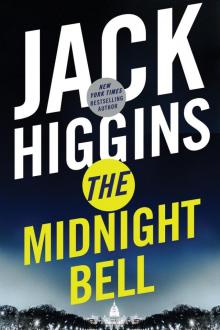 The Midnight Bell
The Midnight Bell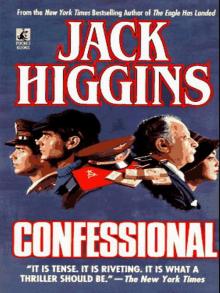 Confessional
Confessional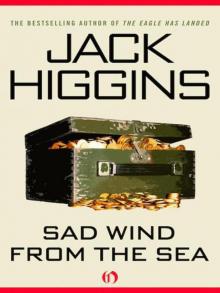 Sad Wind from the Sea (v5)
Sad Wind from the Sea (v5)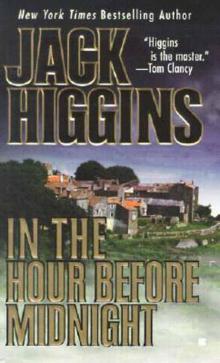 In The Hour Before Midnight aka The Sicilian Heritage
In The Hour Before Midnight aka The Sicilian Heritage Wrath of the Lion
Wrath of the Lion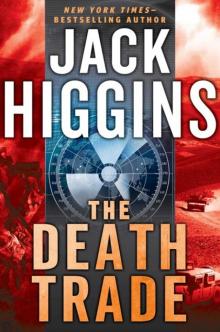 SDillon 20 - The Death Trade
SDillon 20 - The Death Trade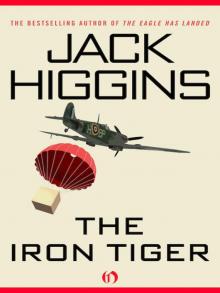 the Iron Tiger (1974)
the Iron Tiger (1974)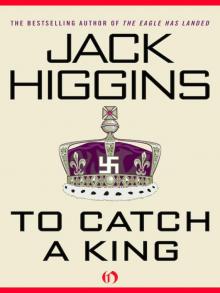 To Catch a King
To Catch a King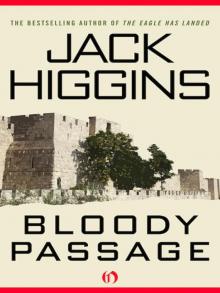 Bloody Passage (1999)
Bloody Passage (1999)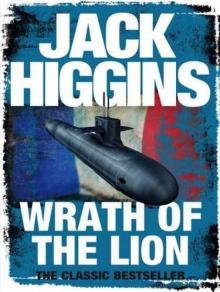 Wrath of the Lion sd-8
Wrath of the Lion sd-8 Sharp Shot
Sharp Shot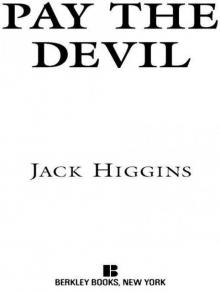 Pay the Devil (v5)
Pay the Devil (v5) A Devil Is Waiting
A Devil Is Waiting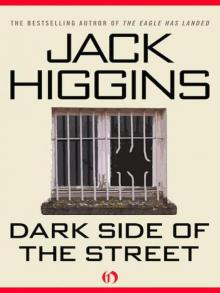 Dark Side of the Street - Simon Vaughn 01 (v5)
Dark Side of the Street - Simon Vaughn 01 (v5)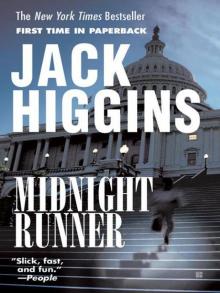 Midnight Runner - Sean Dillon 10
Midnight Runner - Sean Dillon 10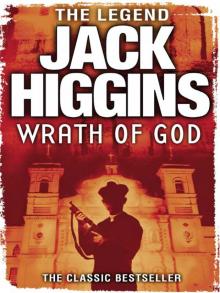 Wrath of God
Wrath of God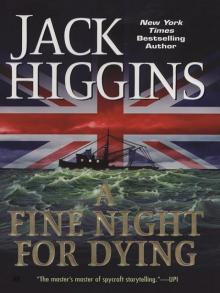 A Fine Night for Dying
A Fine Night for Dying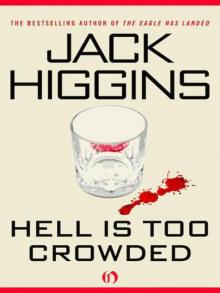 Hell Is Too Crowded v5)
Hell Is Too Crowded v5)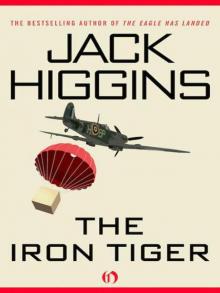 the Iron Tiger (v5)
the Iron Tiger (v5)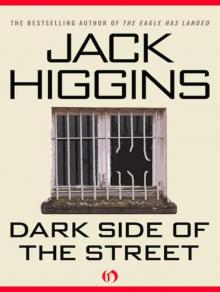 Dark Side of the Street pc-5
Dark Side of the Street pc-5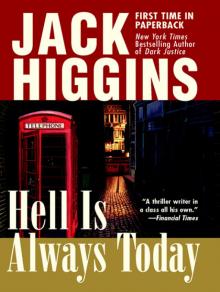 Hell Is Always Today
Hell Is Always Today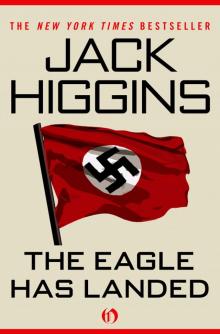 Eagle Has Landed
Eagle Has Landed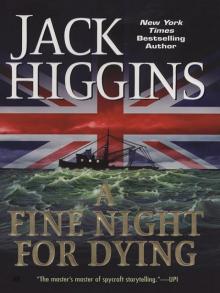 A Fine Night for Dying pc-6
A Fine Night for Dying pc-6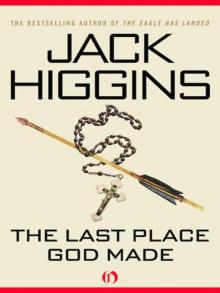 the Last Place God Made (v5)
the Last Place God Made (v5)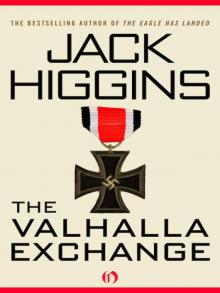 the Valhalla Exchange (1976)
the Valhalla Exchange (1976)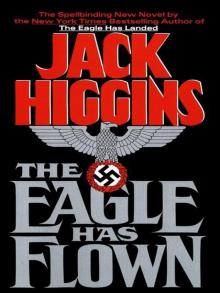 The Eagle Has Flown
The Eagle Has Flown Sure Fire
Sure Fire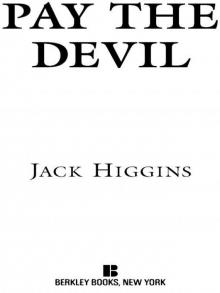 Pay the Devil (1999)
Pay the Devil (1999)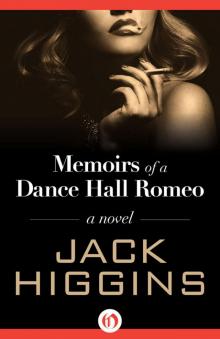 Memoirs of a Dance Hall Romeo
Memoirs of a Dance Hall Romeo![a Prayer for the Dying (1974)[1] Read online](http://i1.bookreadfree.com/i1/04/02/a_prayer_for_the_dying_19741_preview.jpg) a Prayer for the Dying (1974)[1]
a Prayer for the Dying (1974)[1]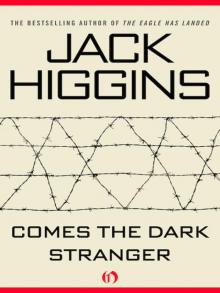 Comes the Dark Stranger
Comes the Dark Stranger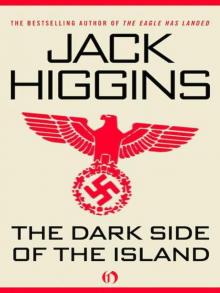 Dark Side Of the Island (v5)
Dark Side Of the Island (v5)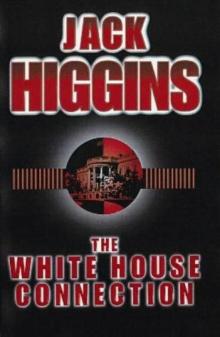 The White House Connection sd-7
The White House Connection sd-7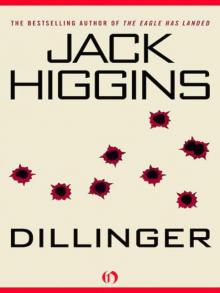 Dillinger (v5)
Dillinger (v5) Eye of the Storm
Eye of the Storm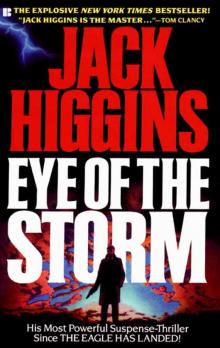 Eye Of The Storm aka Midnight Man
Eye Of The Storm aka Midnight Man A Darker Place
A Darker Place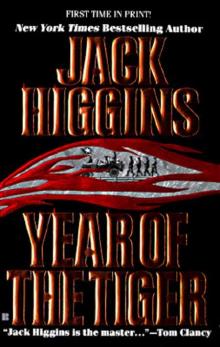 Year Of The Tiger
Year Of The Tiger Death Run
Death Run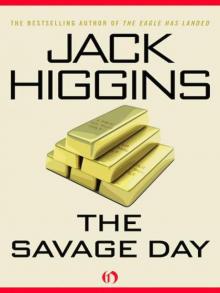 the Savage Day - Simon Vaughn 02 (v5)
the Savage Day - Simon Vaughn 02 (v5)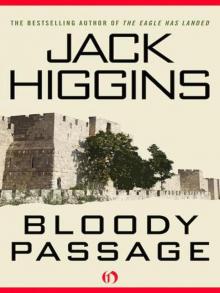 Bloody Passage (v5)
Bloody Passage (v5)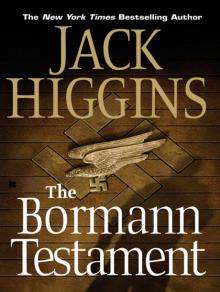 The Bormann Testament
The Bormann Testament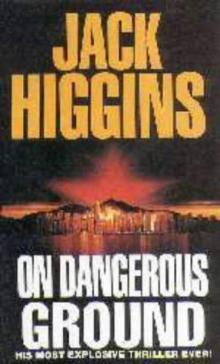 On dangerous ground sd-3
On dangerous ground sd-3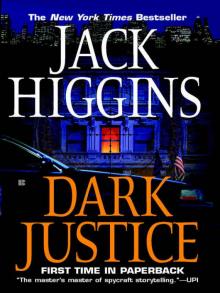 Dark Justice
Dark Justice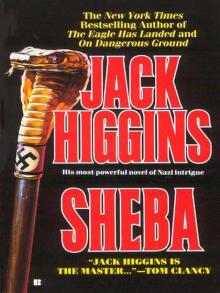 Sheba
Sheba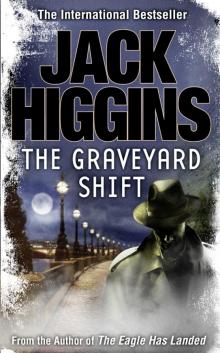 The Graveyard Shift
The Graveyard Shift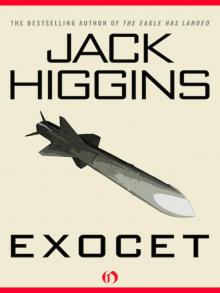 Exocet (1983)
Exocet (1983)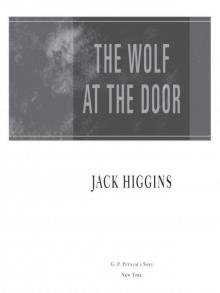 The Wolf at the Door
The Wolf at the Door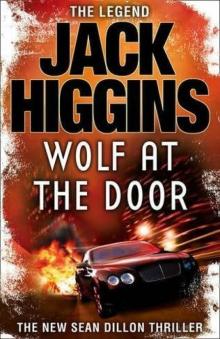 The wolf at the door sd-17
The wolf at the door sd-17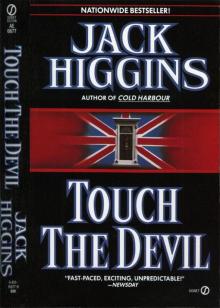 Touch The Devil
Touch The Devil The President’s Daughter
The President’s Daughter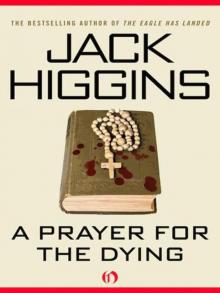 A Prayer for the Dying (v5)
A Prayer for the Dying (v5)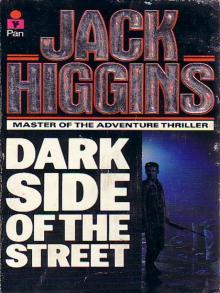 Dark Side Of The Street
Dark Side Of The Street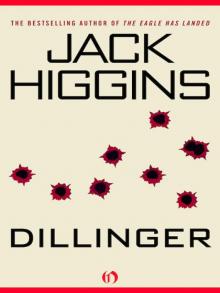 Dillinger (1983)
Dillinger (1983)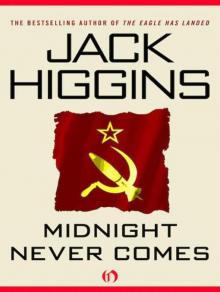 Midnight Never Comes pc-4
Midnight Never Comes pc-4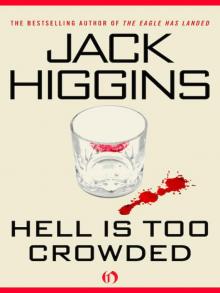 Hell Is Too Crowded (1991)
Hell Is Too Crowded (1991)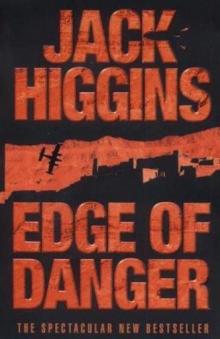 Edge of Danger sd-9
Edge of Danger sd-9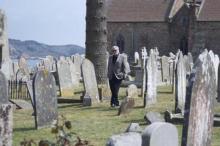 The Thousand Faces of Night (v5)
The Thousand Faces of Night (v5)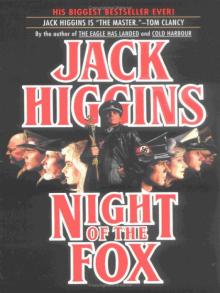 Night Of The Fox
Night Of The Fox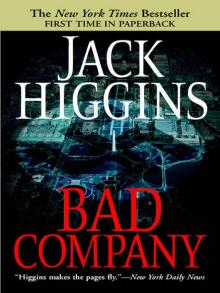 Bad Company
Bad Company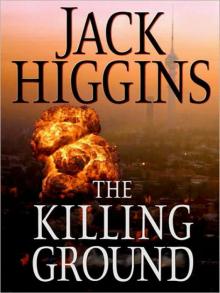 The Killing Ground
The Killing Ground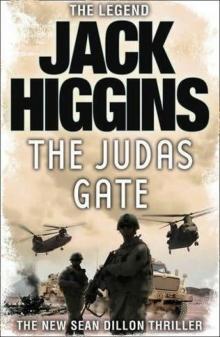 The Judas gate sd-18
The Judas gate sd-18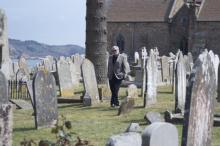 The Thousand Faces of Night (1961)
The Thousand Faces of Night (1961)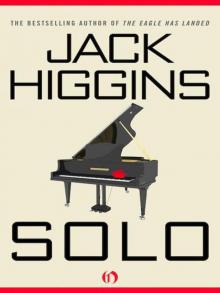 Solo (Aka the Cretan Lover) (v5)
Solo (Aka the Cretan Lover) (v5)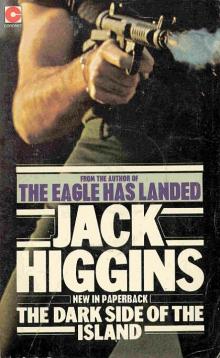 The Dark Side Of The Island
The Dark Side Of The Island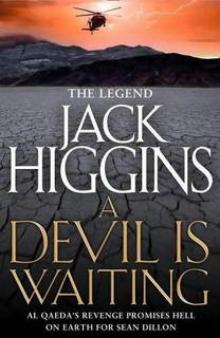 A Devil is vaiting sd-19
A Devil is vaiting sd-19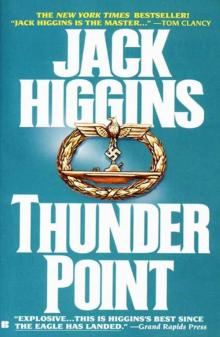 Thunder Point
Thunder Point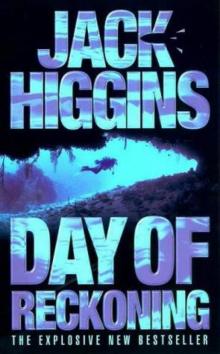 Day of Reckoning sd-8
Day of Reckoning sd-8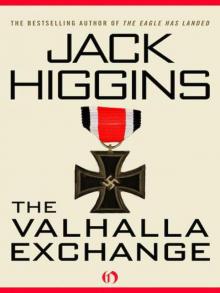 the Valhalla Exchange (v5)
the Valhalla Exchange (v5)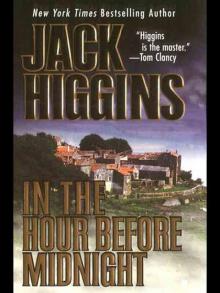 In the Hour Before Midnight
In the Hour Before Midnight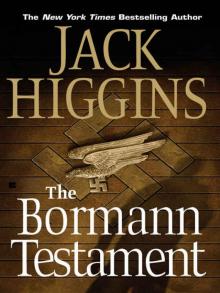 The Bormann Testament (The Testament of Caspar Schultz)
The Bormann Testament (The Testament of Caspar Schultz) The Judas Gate
The Judas Gate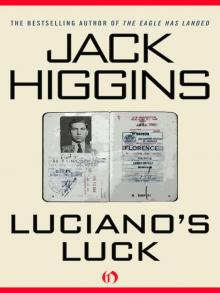 Luciano's Luck
Luciano's Luck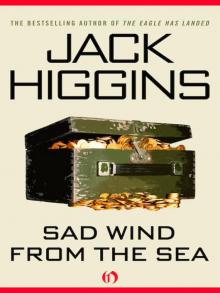 Sad Wind from the Sea (1959)
Sad Wind from the Sea (1959)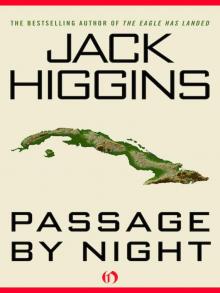 Passage by Night (1987)
Passage by Night (1987)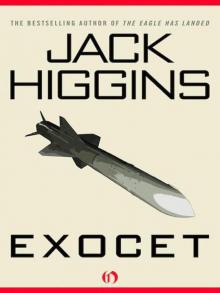 Exocet (v5)
Exocet (v5)